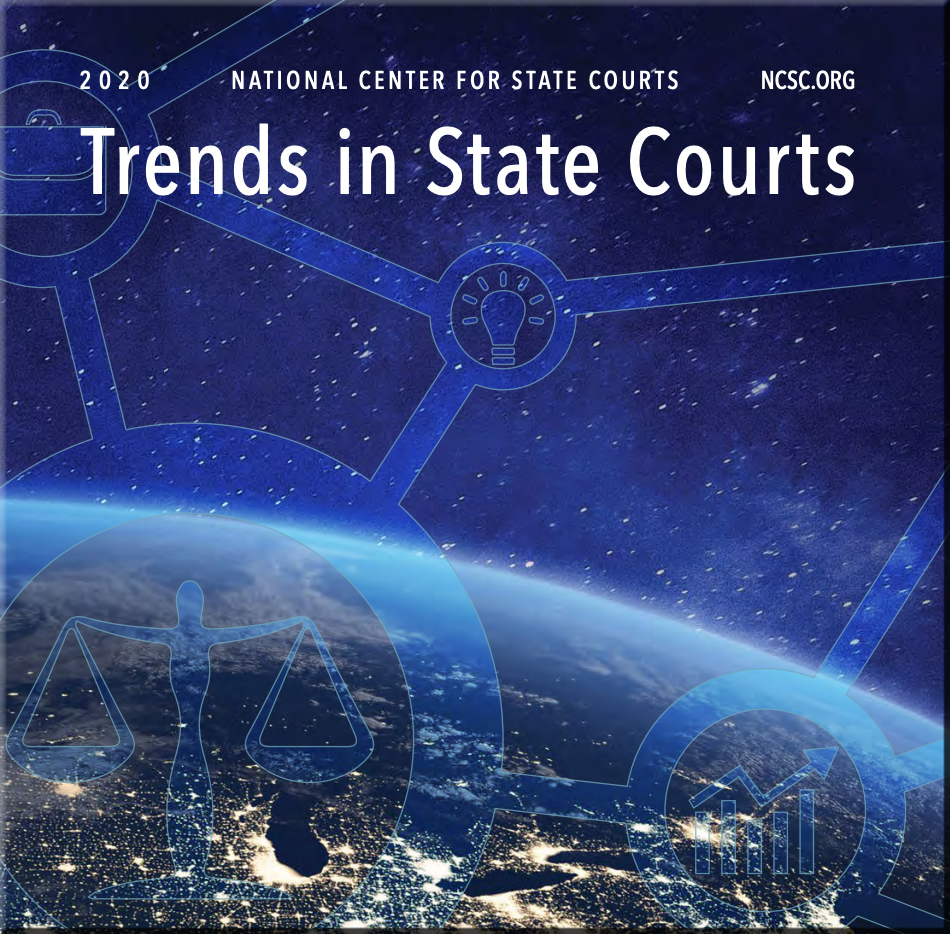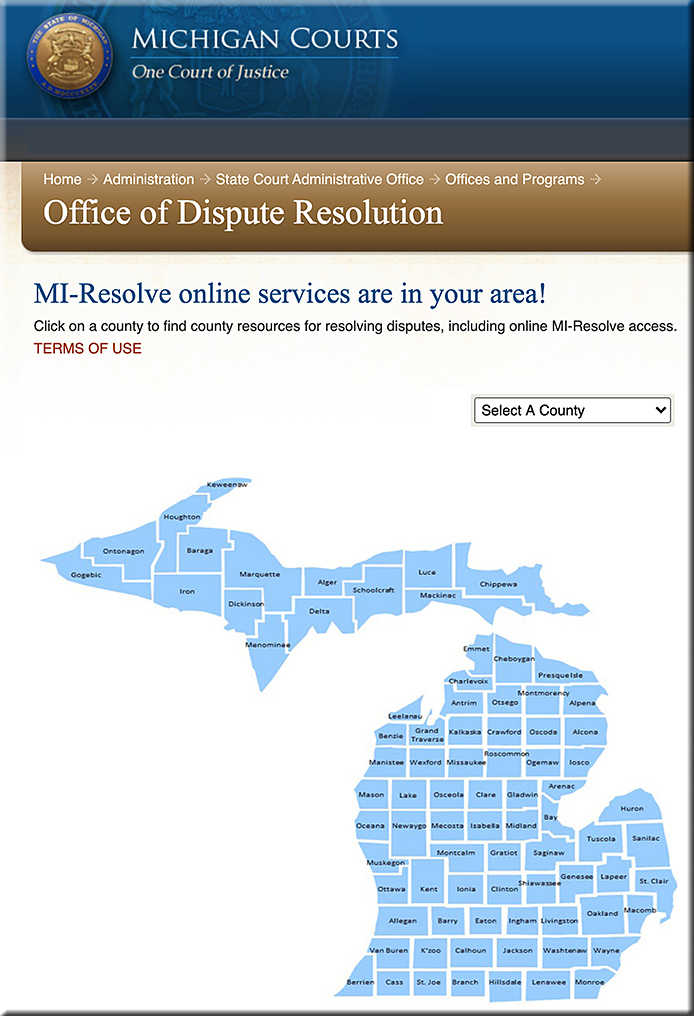Arizona is first state to eliminate ban on nonlawyer ownership of law firms — from lawsitesblog.com by Bob Ambrogi
SALT Social Justice Series Promoting Equity Online (21 Aug 2020) — from saltlaw.org with a special thanks to Catherine M. Grosso for these resources (Catherine is a Professor of Law at Michigan State University, Co-President, Society of American Law Teachers, and an Associate Editor for the National Registry of Exonerations.)
From DSC:
To me, that last bullet point says:
“I’m on your team and I’m here to help you become the best lawyer, litigator, judge, legislator, etc. that you can be.”
Other resources Catherine and Dr. Tasha Souza mentioned:
- Responding to Microaggressions in Online Learning Environments During a Pandemic
- Managing Hot Moments in the Classroom: Concrete Strategies for Cooling Down Tension
- Microaggressions and Microresistance: Supporting and Empowering Students
- Responding to Microaggressions in the Classroom: Taking ACTION
- What to do Before, During, and After Difficult Dialogues About Diversity
- Resources for Supporting Our Campuses in Politically Fraught Times
- Universal Design for Learning: http://udloncampus.cast.org/home
The report also measures how far we have to go as a profession when it comes to race. For example, just 5% of all lawyers in the U.S. are African American, even though African Americans are 13% of the U.S. population. And Native Americans are severely underrepresented on the federal bench. Only two federal judges are Native American among 1,386 nationwide (that’s one-tenth of 1%), despite the fact that 1.3% of the U.S. population is Native American. There is a lot to digest in this fascinating compilation of statistics and trends.
Now in its second year, the ABA Profile of the Legal Profession is becoming a standard reference for anyone who wants to understand the legal profession — past, present and future.
— Judy Perry Martinez
Also see:
Breaking: In Historic Vote, Utah Supreme Court Approves Sweeping Changes in Legal Services Regulation — from legaltechmonitor.com by Bob Ambrogi
Excerpt:
In a historic vote that could set a blueprint for the rest of the country, the Utah Supreme Court has approved the most sweeping changes in a generation to the regulation of law practice and the delivery of legal services.
…
The vote creates a two-year pilot of a regulatory sandbox — a regulatory body under the oversight of the Supreme Court, to be called the Office of Legal Services Innovation, whose charge would be to license and oversee new forms of legal providers and services.
Excerpt:
Richard Susskind and Mark A. Cohen, two of the global legal industry’s most respected names, conducted a series of four live online events titled “The Uncertain Decade.” Each event focused on key industry issues that included: digital transformation and its impact on the legal function, legal education and training, and alternative legal service providers.
Joining host @DanLinna, @MISupremeCourt Chief Justice @BridgetMaryMC details the “unexpected upsides” of the global pandemic, like opportunities for greater access to justice, better litigant experiences, and less hassle for lawyers #A2J #legaltech https://t.co/J495CLj3iW
— Legal Talk Network (@LegalTalkNet) August 5, 2020
The Spanish Flu to Covid-19: How this Pandemic is Pushing Courts to Modernize — from legaltalknetwork.com by Bridget Mary McCormack and Daniel Linna
Episode notes:
Even before the global pandemic, Michigan courts were moving more quickly than many others to modernize. Michigan Chief Justice Bridget Mary McCormack talks with host Dan Linna about accelerating the state’s plans to offer online hearings, online dispute resolution, and to continue efforts to establish e-filing statewide.
Not everything is going smoothly, but McCormack notes some judges are almost current on their dockets. And importantly, she believes that many temporary quick fixes will lead to permanent changes that improve access to justice statewide and increase public trust in the judicial branch.
With millions of Americans unemployed, hundreds of thousands sick, and a recession on the horizon, states across the country need to pivot quickly in order to figure out how to create more accessible—and affordable—legal services. https://t.co/MneMA3nUoU
— Zachariah J. DeMeola (@z_demeola) July 30, 2020
From DSC:
Perhaps faculty members and their students in Computer Science Departments across the nation could unleash some excellent products/projects/ideas to make this happen! Talk about Project Based Learning (PBL)! Students and faculty members could have immediate positive impacts on the nation for their work.
Will the COVID-19 pandemic fundamentally remake the legal industry? — from abajournal.com by Lyle Moran
Excerpt:
They both note that while the Great Recession was a substantial shock to the economic system, COVID-19 has resulted in the sudden upheaval of society at large. This includes changing how members of the public can access the court system or connect with a lawyer.
“It is really fundamentally disrupting overnight every single component of the legal system, and that is very different than 2008-2009,” says Leonard, who is also Penn Law’s chief innovation officer. “I think it creates enormous opportunities for changing many of the ways we work as lawyers, the ways we provide legal services to our clients and also the ways the justice system as a whole works.”
In the short term, Leonard says the pandemic has resulted in massive “forced experimentation.”

In June, Michigan Supreme Court Chief Justice McCormack swore in a cohort of law students via a Zoom conference. Photo courtesy of the Michigan Supreme Court; Shutterstock.
Also see:
- ANALYSIS: Firms Are More Prepared to Use Legal Tech in 2020 — from news.bloomberglaw.com
- Intellectual Property And High-Tech Law Are Creating New Legal Jobs — from by Michael Puyanic
Renters, homeowners face new phase of coronavirus crisis with evictions, foreclosures looming — from finance.yahoo.com by Alexis Keenan
Excerpt:
A potential housing crisis is on the way for millions of Americans whose mortgage and rent deferrals are about to sunset.
Evictions loom as the end of state and local moratoriums will no longer protect homeowners and tenants unable to make payments because of COVID-19 lockdowns. A minority of U.S. states have already expired orders against evictions, and a host of others across the country are set to expire over the next two months.
Once they do, residents are facing a possible flood of non-payment legal actions. The COVID-19 Eviction Defense Project (CEDP) predicted recently that by the end of September, more than 20 million U.S. renters —many of them Black and Latino located in big cities — will be at risk for eviction.
As of today anyone anywhere in Michigan can use our online dispute resolution platform, with or without a mediator. For free. #makelawbetter
Check it out:https://t.co/9139tpr6I9
— Chief Justice McCormack (@BridgetMaryMc) July 1, 2020
Excerpt:
This is a new service supported by the Michigan Supreme Court’s Administrative Office to provide a free, quick and easy way of resolving disputes that are typically filed as a small claims or landlord/tenant case in the district court.
Through MI-Resolve, parties can resolve their disputes online with or without the help of a mediator. Parties can also arrange to meet in person with a mediator or via videoconference. Mediation is a process in which a trained neutral person (a mediator) helps parties identify a solution to a dispute that best works for them. Mediators do not take sides, evaluate claims, or provide legal advice.
Majority of minority female lawyers consider leaving law; ABA study explains why — from abajournal.com by Debra Cassens Weiss
Excerpt:
Seventy percent of female minority lawyers report leaving or considering leaving the legal profession, according to an ABA report on the challenges that they face.
The statistic isn’t statistically significant because the researchers couldn’t find enough women of color in longtime practice to conduct the needed analysis, according to a preface to the report, Left Out and Left Behind: The Hurdles, Hassles, and Heartaches of Achieving Long-Term Legal Careers for Women of Color.
A June 22 ABA press release is here.
“Women of color have the highest rate of attrition from law firms as they continue to face firm cultures where their efforts and contributions are neither sufficiently recognized nor rewarded,” according to the report.
From DSC:
This is discouraging news. Crud.
Law on trial — What the legal industry can do to defend it — from forbes.com by Mark Cohen
Excerpts (emphasis DSC):
How can the legal industry help to restore the rule of law and public confidence in the legal system?
Some Recommendations
The profession must align with the industry to restore public confidence in the legal system. That means, among other things, that lawyers must recognize—as physicians do—that “it takes a village” to battle a crisis. Here are some recommendations how to do it.
1. Acknowledge the problem
2. Collaborate
3. Focus on the Vast, Underserved Retail Market Segment
4. Embrace Diversity
5. Modernize Legal Education and Training
6 Reimagine Courts
7. Think Globally
8. Use Influence to Create Just Laws and Enforce them Equally









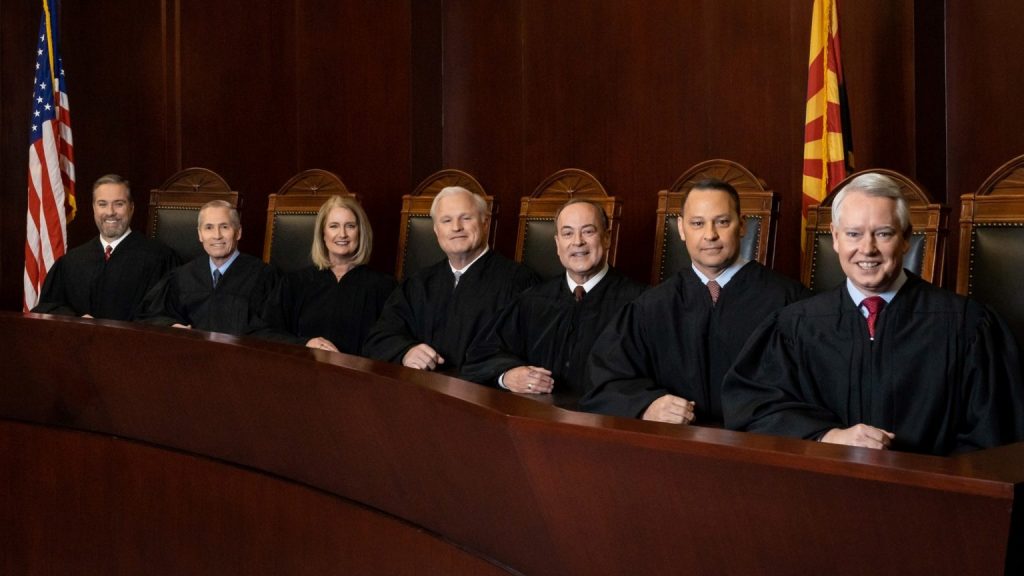
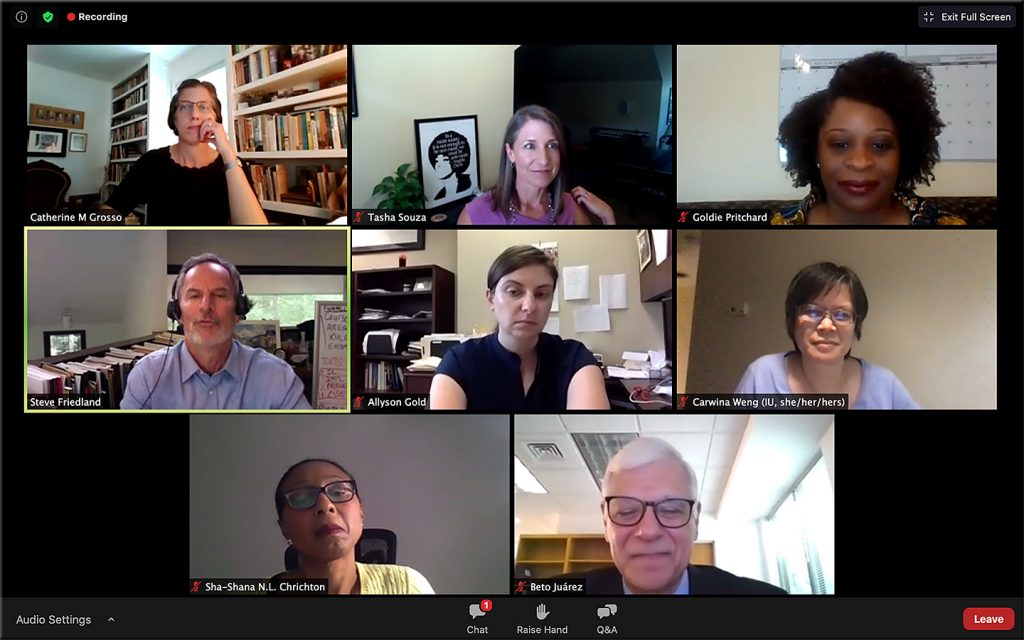
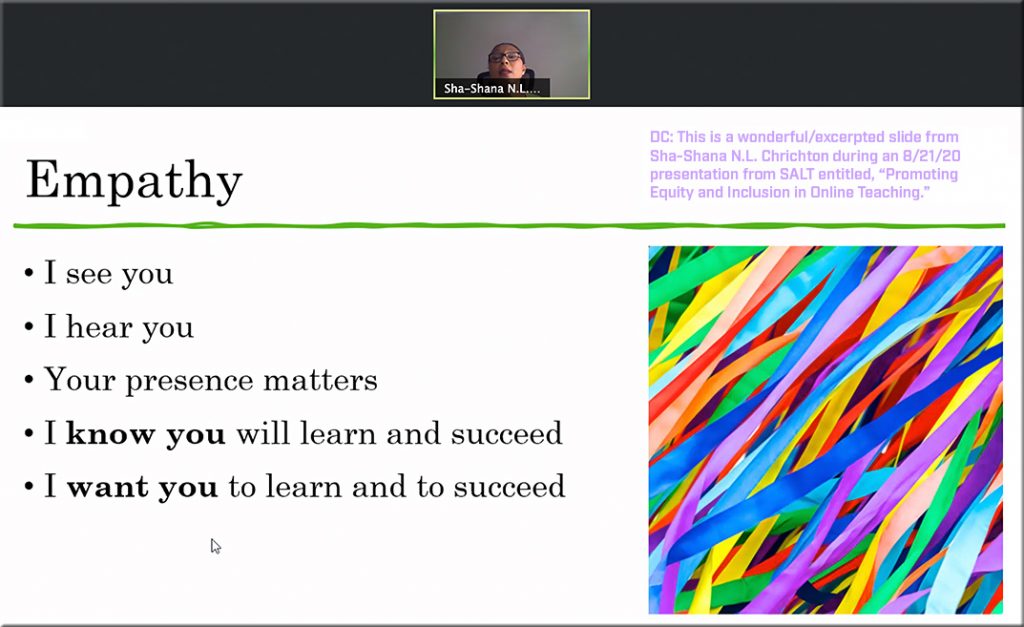


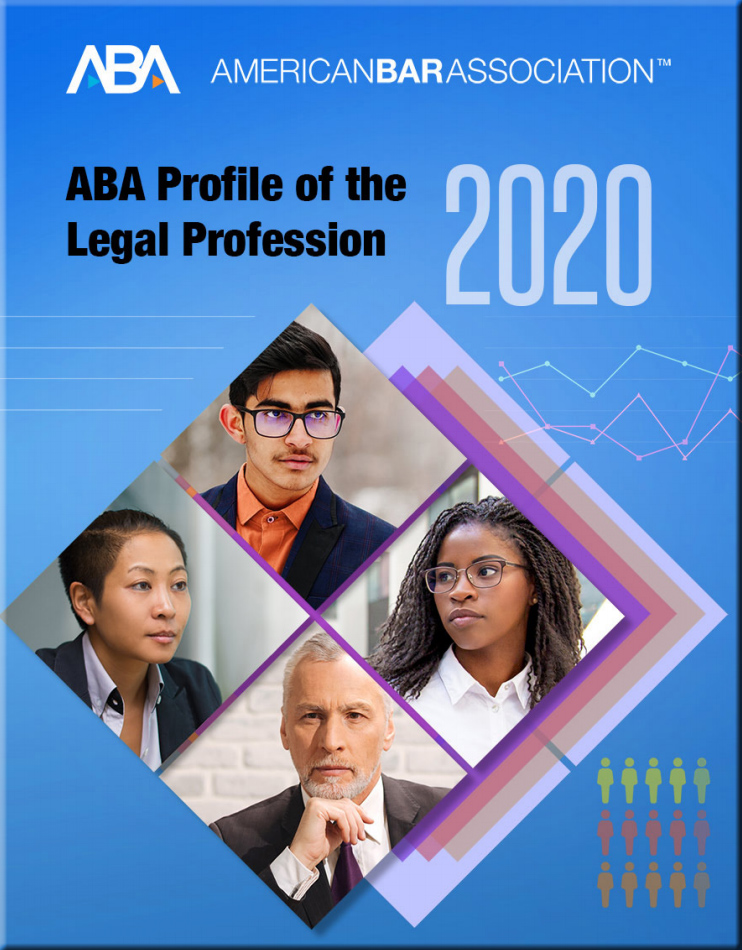
![Reflections on an UnCertain Decade [Susskind & Cohen]](http://danielschristian.com/learning-ecosystems/wp-content/uploads/2020/08/TheUncertainDecade-SusskindCohen-Aug2020.jpg)
